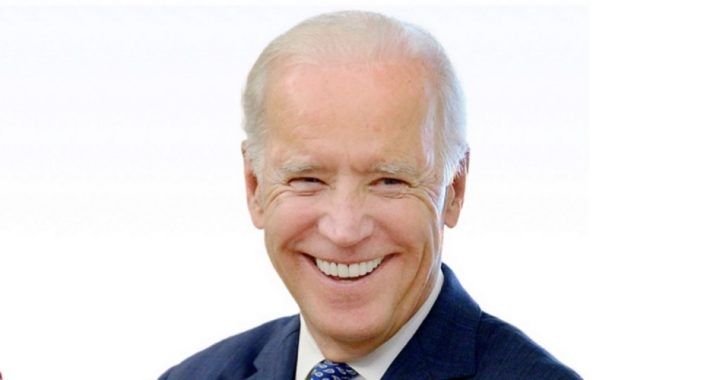
Former Vice President Joe Biden’s victory in South Carolina on Saturday — called “thundering” by the AP, “decisive” by the New York Times and a “runaway victory” by the Wall Street Journal — accomplished many things, including breathing new life into his stumbling, bumbling run for the roses in Milwaukee in July.
His 30-point lead over distant second-place finisher Bernie Sanders ended the campaigns of Tom Steyer and Pete Buttigieg, while putting Amy Klobuchar’s campaign on the ropes. Biden won every county, obtaining nearly 50 percent of the total votes cast, compared to just 20 percent captured by Sanders. Biden enjoyed support from nearly two of every three black voters who make up almost 60 percent of the state’s Democrat voters. Elizabeth Warren came in at just seven percent, Klobuchar at three percent, and Tulsi Gabbard at one percent.
More importantly Biden’s win on Saturday severely dented the momentum being enjoyed by Bernie Sanders and put into serious question whether Super Tuesday would enable the Sanders campaign to regain its previous “runaway train to Milwaukee.”
Sanders’ campaign is also likely to suffer from those voters who were supporting Steyer and Buttigieg moving to Biden’s camp, further eating into his advantage.
It also confirmed the long Bloomberg strategy of disrupting the Democrat Party’s campaign to the point where no single candidate has enough delegates to secure a win on the first ballot in Milwaukee, therby putting all the delegates up for grabs on the second ballot. Bloomberg will be, for the first time since he announced back in November, on the ballot of the 14 states holding primaries or caucuses on Tuesday, further cutting into Sanders’ advantage.
Michael Bloomberg spent millions on a three-minute ad appearing on major television stations on Sunday night in every state holding primaries on Tuesday, indicating his continued intention of drawing delegates away from the leaders and thus increasing the chances for a brokered convention.
FiveThirtyEight, the polling analysis website run by Nate Silver, has tracked the movement toward a contested convention, reporting a 50-50 chance for one last Thursday. On Sunday morning Silver’s models showed the chances for a brokered or contested convention moving up to three chances out of five (59 percent). Early Monday showed that probability moving up further to two chances out of three (65 percent). Silver added that the probability could move even higher with the exit of Buttigieg: “Buttigieg dropping out may actually increase the likelihood of a contested convention [as] his votes will help other candidates to get over 15% and get delegates.… The major effect … with Buttigieg dropping out, the major effect is to help ‘no majority’ [on the first ballot] at the expense of Sanders.”
Elizabeth Warren’s campaign has announced its determination to stay on course to the bitter end (which is why the end is called “bitter”), thus further soaking up voters who would otherwise (presumably) be voting for Sanders. Despite being drubbed in South Carolina, and polls indicating that she will lose her home state of Massachusetts to Sanders by four points, her campaign’s press secretary put the best face possible on the campaign: “Elizabeth enters Super Tuesday with lots of groundwork laid, two fantastic debate performances during early voting in upcoming states, and an overall position of strength.”
Her campaign manager Roger Lau said that Warren was “poised” to finish second in eight Super Tuesday contests and in the top three in all 14. That will all but assure a brokered convention, Lau said in a memo issued on Sunday: “As the dust settles after March 3, the reality of this race will be clear: no candidate will likely have a path to the majority of delegates needed to win an outright claim to the Democratic nomination.”
The magic number on the first ballot in Milwaukee in July is 1,991 in order to win.
Mayor Michael Bloomberg’s obvious disdain for any of the present candidates leads one increasingly to speculate as to whom he is keeping under wraps as the savior of the party that, by all appearances, is determined to immolate itself in the general election. While the Democrat National Convention is four months away, speculation is that Bloomberg will control the voting on the second ballot with his heavy financial influence on the majority of the 771 superdelegates who then would come into play. The perfect candidate for Bloomberg to fund with his millions would likely be black, female, articulate, progressive but not scary, and without blemish or baggage. With his funding behind such a candidate she, along with the assistance of Facebook and Google, could mount a serious challenge to President Trump in November.
Image of Joe Biden: Screenshot from joebiden.com
An Ivy League graduate and former investment advisor, Bob is a regular contributor to The New American primarily on economics and politics. He can be reached at [email protected].
Related articles:
Biden Trailing Sanders as Super Tuesday Approaches, but Can Sanders Beat Trump?
Democrat Superdelegates: Brokered Convention Better Than Bernie



